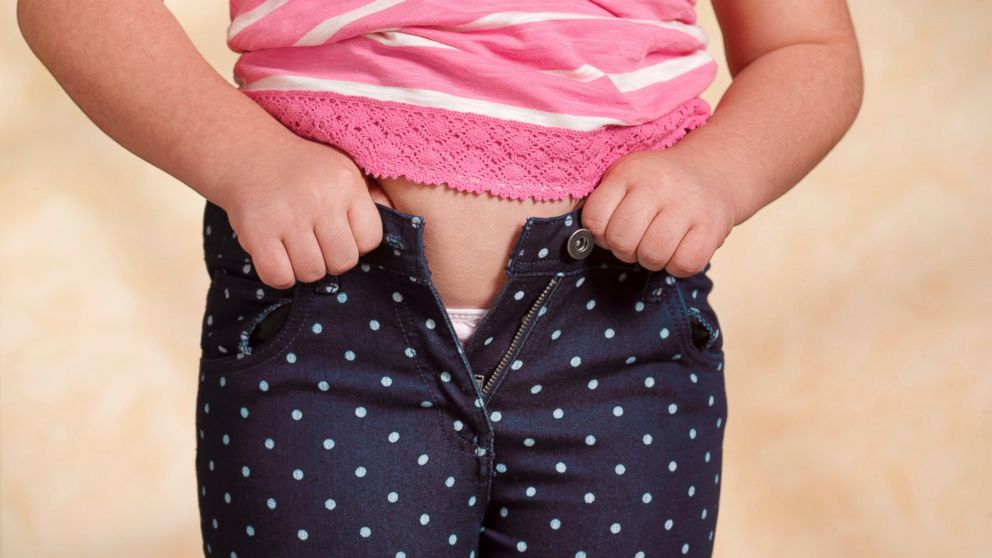Childhood obesity treatment as effective for parents without the child, study finds
The study aimed to answer whether working with parents alone could be effective.

— -- In the struggle against childhood obesity, doctors and parents have tried to engage and motivate kids to stay healthy. But a new study finds that programs aimed at parents -- without the kids -- may be just as effective a tool as therapies that include the whole family.
Childhood obesity is an epidemic affecting one in three American kids who can expect to face severe consequences for life expectancy and quality as they become adults.
Parents play the most significant role in establishing healthy environments and habits, so experts have welcomed them into treatment sessions with their children. This time-tested family-based model includes behavior therapy and nutrition and physical activity education for not only obese children, but also their parents. Family-based therapy is considered the gold-standard and has been the most effective intervention so far, experts say.
However, coordinating busy schedules can be a struggle for working parents with school-aged kids, so in a new study researchers at the University of California, San Diego tested a parent-only program where kids were not in the room. They recruited 150 parents with children between the ages of 8 and 12 and sent them either to family-based treatment or parent-only treatment.
Dr. Kerri Boutelle, the lead author and a professor in residence at the University of California San Diego, said the research was designed to give parents more flexibility when seeking help.
"Parents struggle with a lot of different issues," Boutelle told ABC News. "We see parents come in with kids who want help. And we see others who are uncomfortable or ashamed who don’t want to come or see the doctor because they don’t want to admit the child is gaining weight. My advice is: don’t worry about the kid’s interest in coming or ability to come. Parents can do this on their own."
After 20 sessions spread over six months, the 150 kids from both groups experienced the same amount of weight loss and kept it off over the next eighteen months. Children and parents in different groups reported dietary intake or physical activity with no significant differences.
Participants were also given questionnaires –- parents were asked about their beliefs, attitudes and practices regarding child feeding while children were asked about their perceptions of their parent’s behavior -– and results again were the same across both groups.
Together, the research suggested that the parent-only intervention was as effective as the family-based method, the authors said.
Experts who endorse family-based treatment acknowledge it was never a perfect solution.
Dr. Naveen Uli, Associate Professor of Pediatrics at University Hospitals Rainbow Babies & Children's Hospital at Case Medical Center in Cleveland, Ohio, said there are clear limits on this traditional form of therapy.
"The limits of family-based therapy are that it requires time commitment, not only from the parents, but also from the child," Uli told ABC News. "Children are in school a lot of times and have extracurricular programs after school. So the logistics can be difficult to have families participate week after week and month after month."
Parents in both groups who participated in the study also lost weight themselves. But those in the parent-only treatment plan gained the weight back faster during the next 18 months. These parents were also likely to miss more sessions for reasons that were unclear to the study investigators.
The combination of education and behavioral therapy still remains the best option for addressing childhood obesity. Other alternatives such as medications or surgery have major downsides, according to Uli.
Few drugs are approved for weight loss in children, and bariatric weight loss surgery isn’t recommended for growing kids.
While doctors and nutritionist are skilled at giving advice, Boutelle pointed out that behavior-based multidisciplinary programs –- which are led by psychologists and may include other experts such as dieticians and exercise physiology specialists –- offer more value.
"The thing these programs do that is different is to teach parents how to do this," Boutelle said. "Not just what, but how."
Boutelle said the study aimed to answer the important question of exactly who needs to be present for effective weight loss therapy.
"We wanted to know if a child needed to come to treatment for parents to help their overweight kids lose weight," she said. "And the take-home is: they don’t."
Parent-only therapy can be offered on a much more flexible schedule when kids aren’t required to tag along, she noted.
"We can offer it at night or during the day or at lunch at work," Boutelle said. "There’s all kinds of ways to offer it if it’s just parents."




